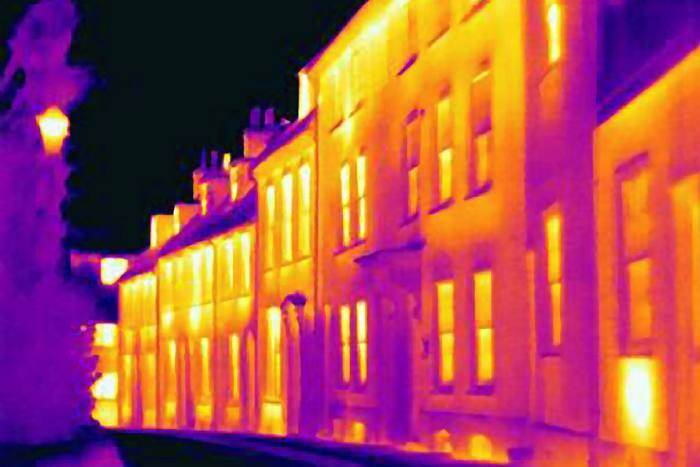UK government failing to cut carbon emissions from home heating
Business, Energy, and Industrial Strategy Select Committee sees a lack of direction on how to end reliance on gas.
-

UK government ‘failing’ to cut carbon emissions from home heating.
An influential committee of UK MPs has warned that the government is failing to reduce greenhouse gas emissions from heating UK homes, with little sign of a clear plan to reduce reliance on increasingly expensive gas.
Home heating accounts for roughly 14% of UK carbon emissions and must be addressed quickly if the government is to reach its carbon reduction targets. Ministers announced a heat and buildings plan last year, with the goal of weaning the UK away from gas, which accounts for roughly 80% of household heating, and toward lower-carbon options like heat pumps.
However, the Business, Energy, and Industrial Strategy (BEIS) select committee stated that the strategy did not specify how the reforms would be implemented, that the government "lacked clear guidance" on the subject, and that present measures were insufficient in light of the problem's magnitude.
The warning comes amid soaring gas prices around the world, which are also likely to result in a sharp rise in the energy price cap, to be announced on Thursday, and expected to hit lower-income households hardest.
The administration is considering ways to mitigate the effects of price hikes. Some Conservative MPs and commentators have blamed price hikes on renewable energy investments and the net-zero aim, although analysts have stated that renewable energy has driven down energy costs in the UK, and that over-reliance on gas is to blame for the increases.
Jan Rosenow, a director at the Regulatory Assistance Project, who advised the committee, told The Guardian: “Shifting away from fossil fuels is the only real solution to the energy price rises. The alternative is to keep using fossil fuels, and then we will see this again and again.”
Could the government help?
According to the BEIS committee report, the government must clearly convey to families that decarbonizing heating and achieving net-zero emissions should result in net savings for homes and safeguard them from unpredictable gas costs. The government, however, has not done enough, according to the MPs, to make this apparent and to make the transition easier for people on low and middle incomes.
"Replacing gas boilers is a tremendous challenge, and we are not making anywhere near enough progress," said Darren Jones, chair of the cross-party group. Today's bill payers are concerned about rising energy expenses, with many individuals unable to afford to heat their houses."
He added: “Most people don’t realise that their gas boiler will need to be replaced within the next ten to 15 years. The government and energy companies should explain to bill payers why switching away from gas and insulating our homes is not only important in tackling climate change, but also a route to reducing energy bills. The government also needs to spell out what financial help will be put in place for those who need it most.”
Could heat pumps be a solution
Ministers want to install 600,000 heat pumps per year by 2028, up from a few thousand now, but the committee said it wasn't obvious how this could be accomplished with present policies, such as a £5,000 subsidy for heat pump installation. The green homes award, a short-lived program to insulate homes and install heat pumps, was terminated last year due to poor administration, and no replacement has been announced.
The Treasury is also said to want to eliminate the Energy Company Obligation, a £1 billion a year fee on energy companies that pays the construction of insulation and other low-carbon measures for lower-income households and is paid for through increases in energy bills. Green activists argue that eliminating ECO would be counterproductive.
Jones believes the government needs to come up with an alternative for the green houses subsidy as soon as possible. "Ministers cannot simply leave this to the market; government should address the expense of heating our houses in its whole, and bring up coordinated measures that address all of these challenges," he said.
Is energy efficiency a solution?
According to recent study, energy efficiency improvements have saved UK households over £1,000 per year on current energy bills over the last two decades. However, much of the cost savings and carbon reductions came from regulations requiring only the most efficient gas boilers to be sold, and future cost savings and carbon reductions will have to come from replacing gas with alternatives such as heat pumps, electricity, and district heating, as well as insulating Britain's drafty housing stock.
"Heat pumps are the way to go for clean, safe, and efficient heat – but there is still more work to be done to turn government vision into delivery on the ground," said Juliet Phillips, campaign coordinator for the Electrify Heat campaign.
She added: "This means building a skilled workforce who can install and maintain heat pumps across the country; widespread public engagement and provision of trusted advice to support households to make the switch; and boosting affordability through removing legacy policy costs from electricity bills, which currently unfairly penalise electricity use compared to gas.”
"Without heat pumps and other low-carbon heating solutions, the UK's net zero aspirations will be difficult to fulfill," said Laura Bishop, chair of the Ground Source Heat Pump Association, an industry organisation. The majority of households in the United Kingdom can benefit from heat pumps."
The committee also recommended that households be assisted in obtaining financing to install low-carbon heating systems, including grants for the most vulnerable, as well as investment in engineering and installation training, in collaboration with the UK's heating and construction businesses.

 6 Min Read
6 Min Read









